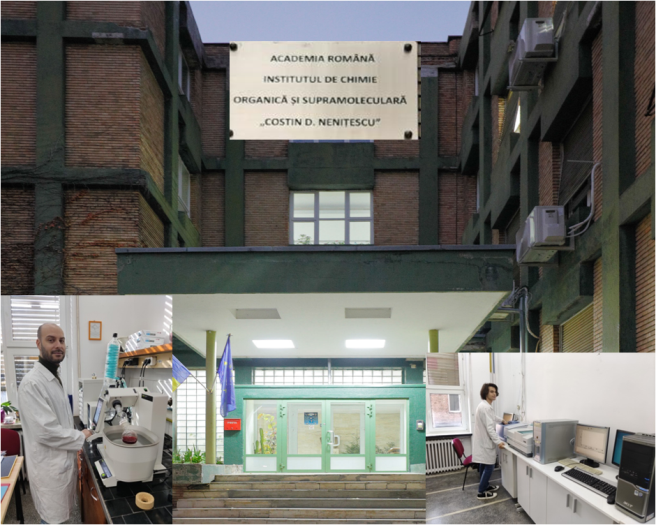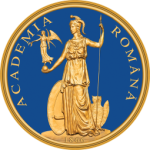About us

Short History
"C. D. Nenitzescu" Institute of Organic and Supramolecular Chemistry (ICOS) is a prestigious research institute of the Romanian Academy, with a long tradition in organic chemistry. Established in 1949 by the famous Professor Costin D. Nenitzescu (1902-1970), the Institute has a long history in fundamental and applied organic synthesis and characterisation, as well as in the study of chemical reaction mechanisms. Initial research interests developed back in 1960’s were focused on the chemistry of small rings and strained polycyclic hydrocarbons, heterocyclic systems and mesoionic compounds, aluminium chloride catalysed reactions, areas of high scientific impact in that period. Special attention was paid to applied research, an original catalytic process for low-pressure polymerisation of ethylene being developed simultaneously with the famous Ziegler-Natta process.
Professor Nenitzescu was the first Director of the institute, until 1970, followed by Professor Ecaterina Cioranescu-Nenitzescu. In 1990, the institute regained its original status and scientific interests under the name “C. D. Nenitzescu” Center of Organic Chemistry. In 2022, has become the “Costin D. Nenitzescu” Institute of Organic and Supramolecular Chemistry (ICOS), a new organization of the research activity being implemented.
Research areas, scientific research
The scientific activities are focused on addressing research challenges related to fundamental chemistry as well as applied organic chemistry, divided into six major axes:
Heterocyclic compounds: synthesis, stereochemistry and reactivity - with a main focus on the synthesis and structural characterization of nitrogen cotaining heterocycles, investigation of the reaction mechanisms, stereochemical aspects (helicoidal isomerism, stereochemistry of intermediates, regioselectivity), and halogen and other supramolecular interactions (liquid and solid state).
Smart organic materials - brings cutting-edge skills in the fields of organic, polymer and material chemistry and engineering, aiming to bridge the gap between fundamental and applied research in the field of organic materials and to provide solutions to major challenges facing our society. The research activities concern the development of functional molecules and new synthetic strategies to enable access to dynamic complex molecular systems, targeting a wide range of applications including biomaterials, drug delivery systems, information storage, sensing and diagnostics.
Metabolomics and the chemistry of nature - inspired compounds - active in synthesis of biological active heterocycles, structure elucidation of organic compounds and metabolomics in agro-food and life sciences. Advanced structural characterization of organic compounds, investigation of plant, animal and human metabolism are also part of the reaserch interests of the group.
Bioresources and sustainable organic chemistry - carrying out research for valorization of bioresources, conversion of secondary compounds resulting from industrial processes into added value products, and conversion of end-of-life products into materials useful in everyday life.
Computational chemistry: structure and reactivity - modelling techniques in order to understand the structure and reactivity of molecular and supramolecular systems or the interactions of molecules with other molecules or catalytic surfaces with the help of numerical simulations at different levels of theory ranging from molecular mechanics to ab initio methods. Also QSAR-QSPR studies are developed based on original approaches and using software developed in house.
Metallosupramolecular and Crystal Engineering - combining classical organic chemistry, supramolecular organic synthesis, coordination chemistry and crystal engineering, at the interface of fundamental research and material science. The research focuses on the design and synthesis of stimuli-responsive molecular compounds, molecular magnetic materials, crystal engineering of electroactive organic and metal-organic cages, rational design of metal-organic frameworks.
The ICOS develops multiple scientific worldwide collaborations.





